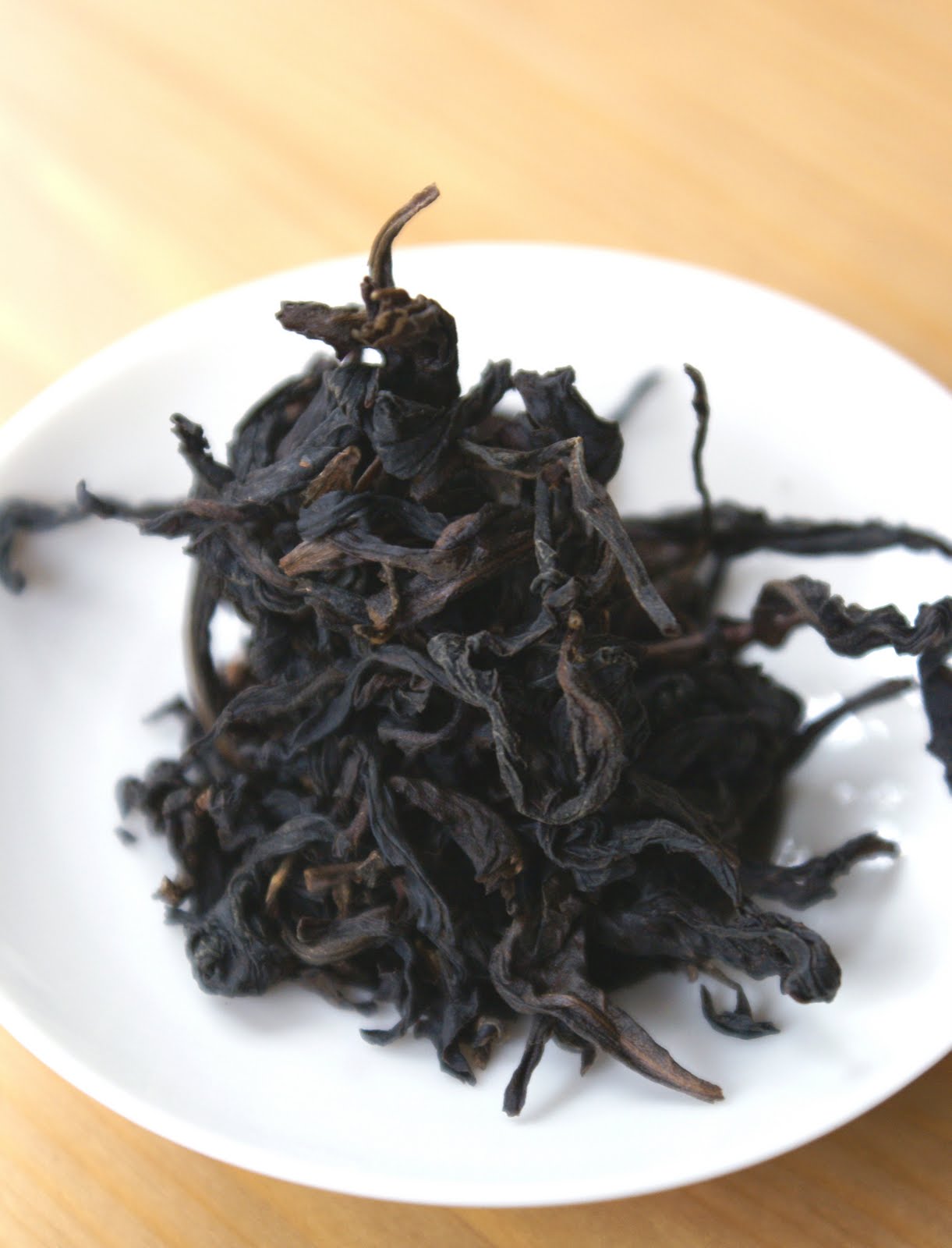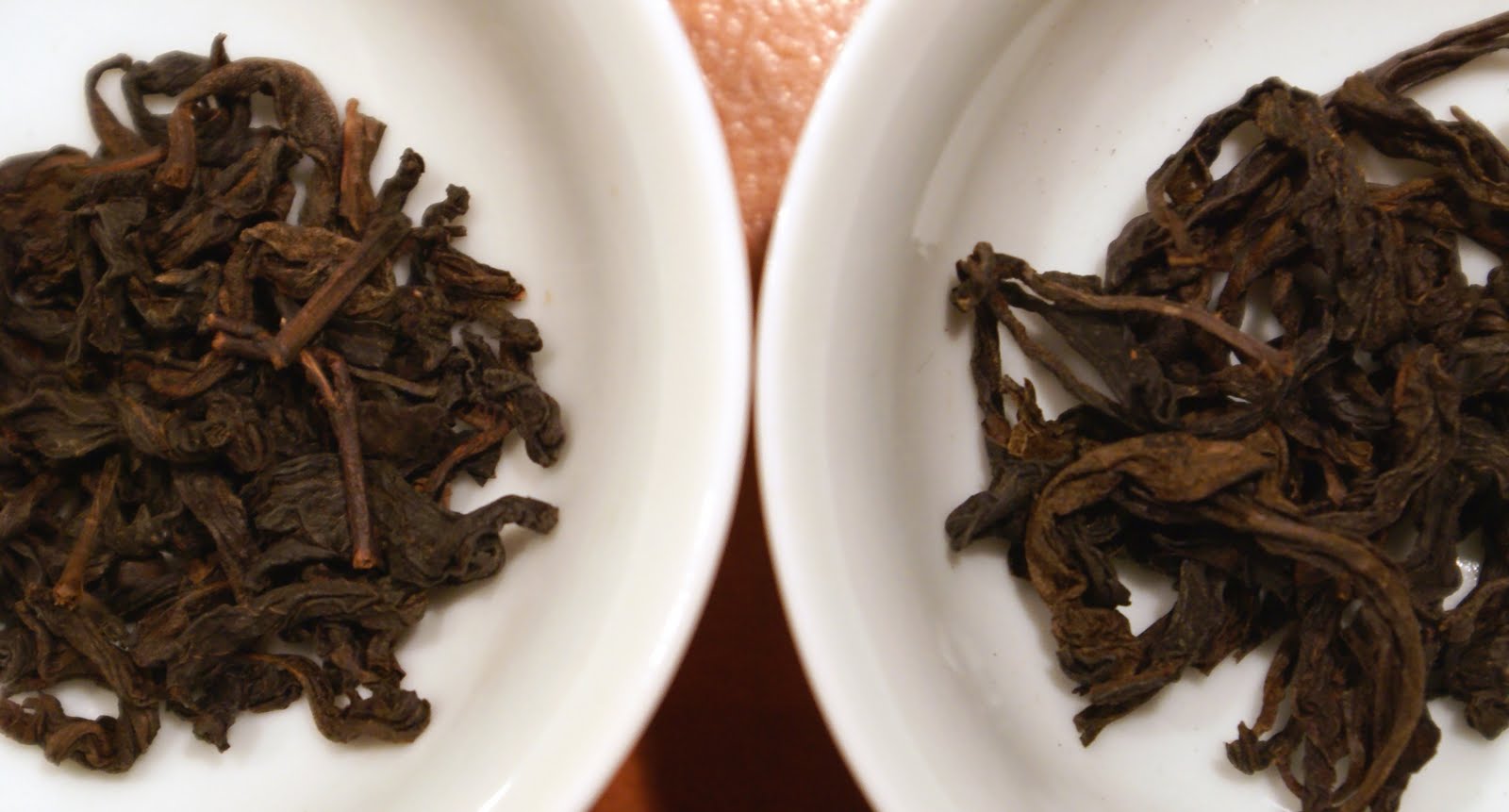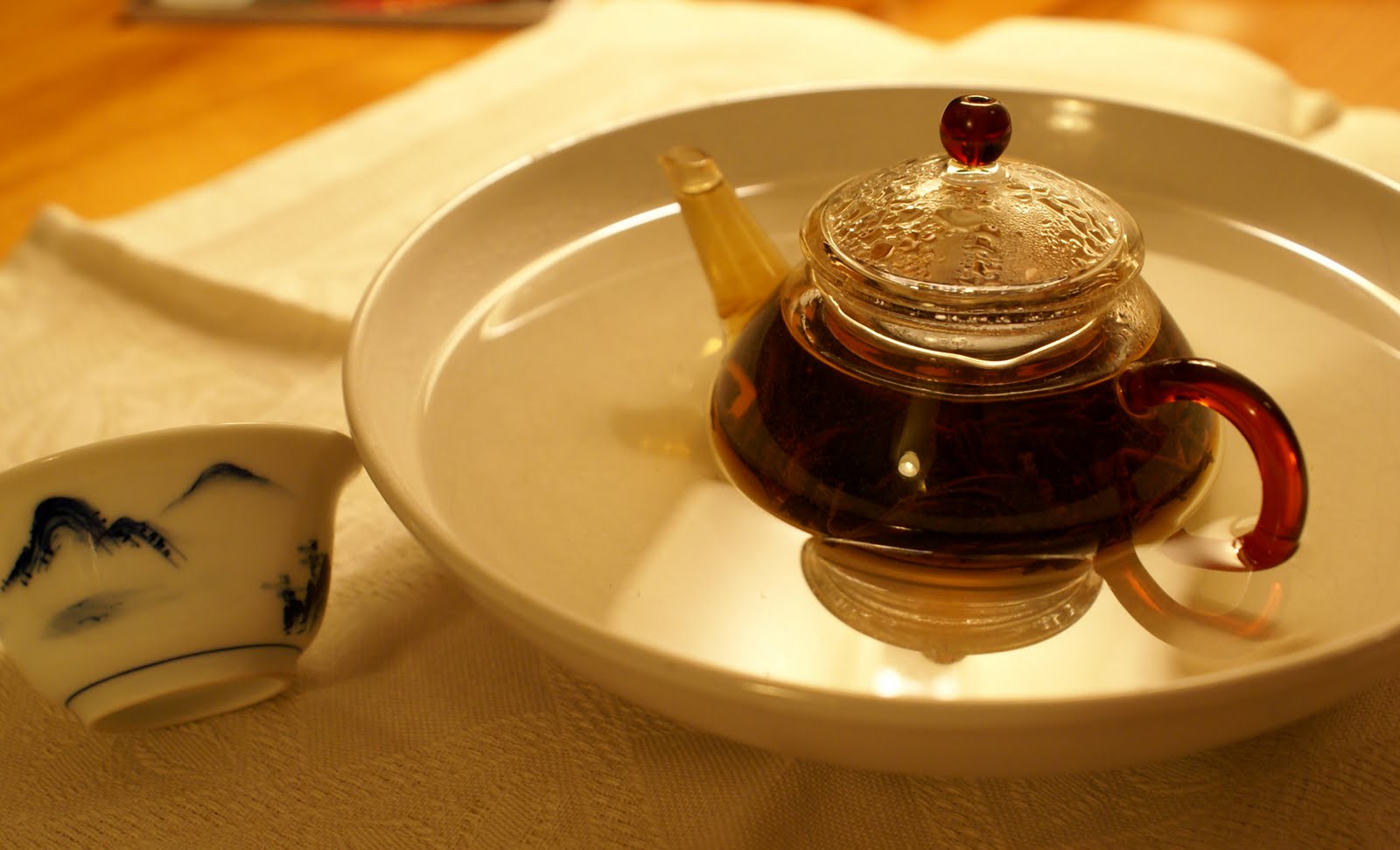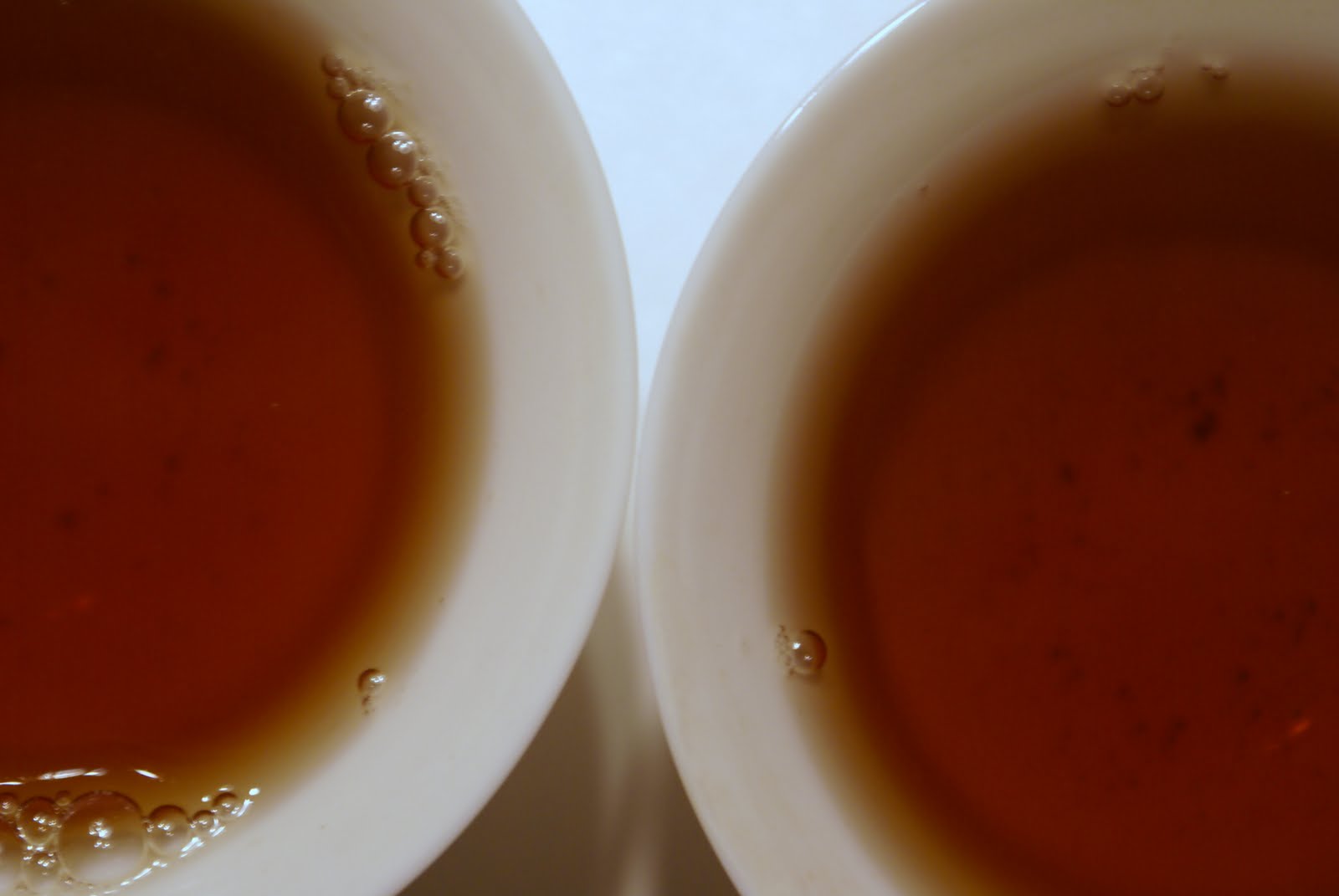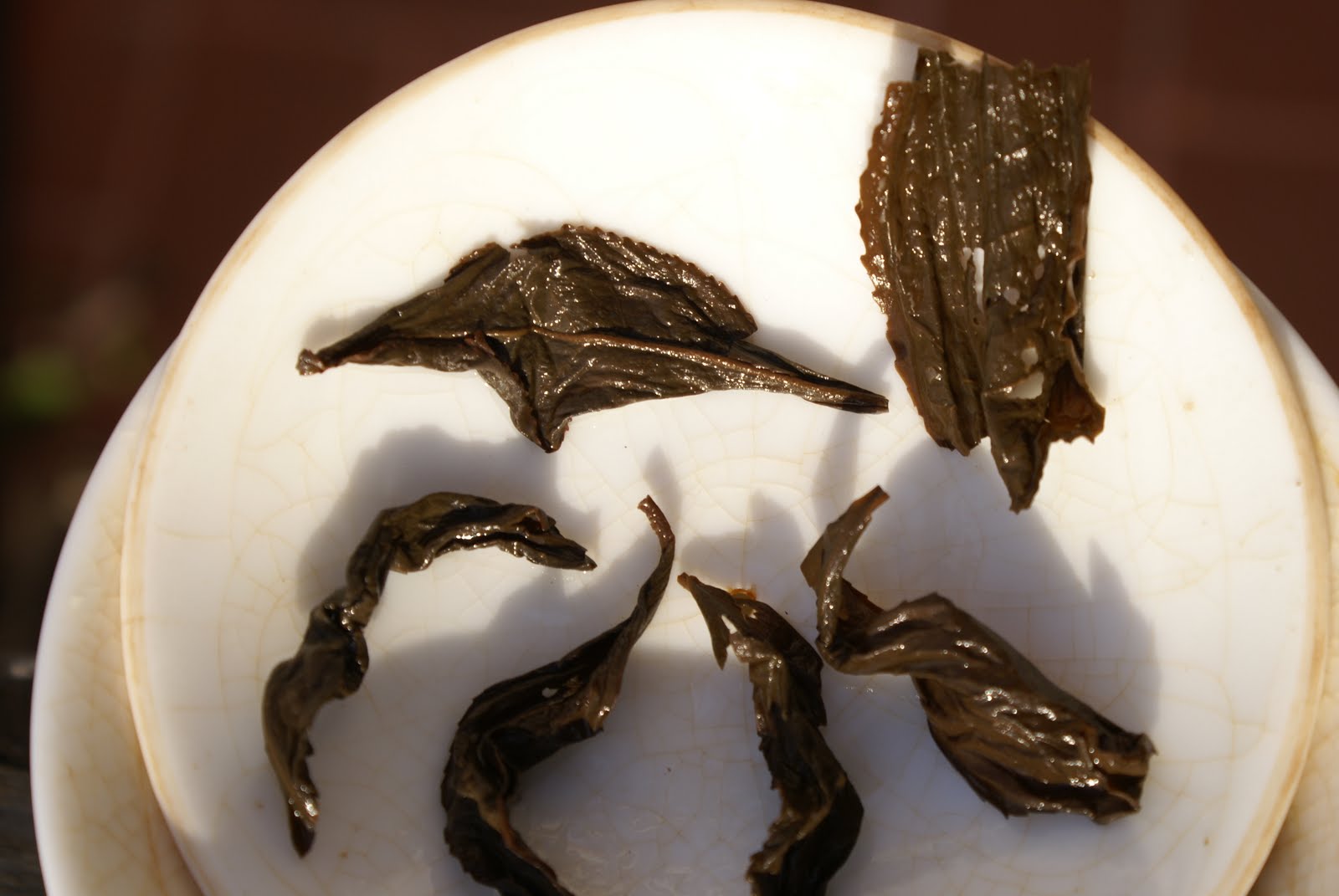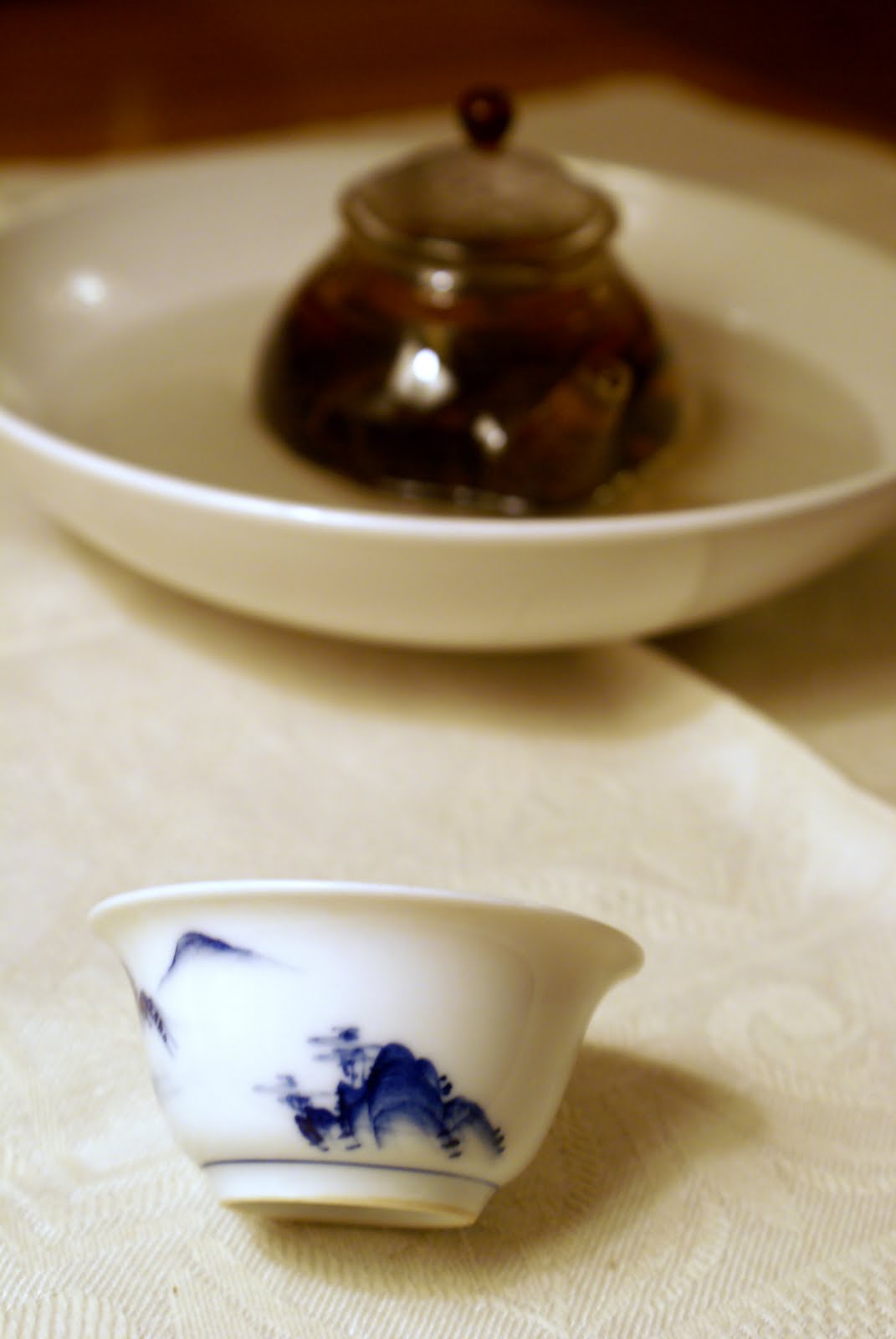A 1983 for 2010
Posted on 3 January 2010
Remember my post about the 1976 Baozhong? To my delight Stéphane Erler of Teamasters recently sourced another old vintage tea from Taiwan: the 1983 Spring Baozhong from Pinglin village.
This tea is exhilarating from the very moment you open the package and smell the dry leaves: bursting with dried fruits mulled orange spice and dark honey. It’s a noticeably higher grade than the 1976: the leaves are very large and nearly all intact (on the photo below, the 1983 is to the right):
Courtesy of the intact whole leaves, however, this tea needs an ever longer brewing time. Brewed gongfu style or even with a 5-minute competition steep, it pours a fairly pale colour and a simple, low aroma of dried fruits and apple; the palate is very pleasant, dried fruits-driven again, but not very expansive, and ending on a somewhat drying note of roast.
The secret is to dose low (for the 150ml pot you see on the photo above, 1.5g of leaf was quite enough) but brew for as long as 20–25 minutes. (You’ll need to be periodically pouring boiling water on your pot to prevent it from cooling). In this way, the tea acquires a totally new dimension. Its texture becomes dense and oily, and the aromatic spectrum is very complex: apples, raisins, dried fruits but also grape gelée and candied exotic fruits, dark honey (there is a strong note that reminded me of the Polish buckwheat honey I reviewed here), followed by a dry roast-driven aftertaste that even has a bit of charcoal to it. (It’s possible to overbrew this tea and exasperate this dryness on the finish, hence the importance of low dosage).
1976 and 1983 Baozhong: the former is just a tiny bit lighter.
It’s a gorgeous tea, rich yet elegant, mature yet tonic and spritely. Its profile is very typical of an aged Baozhong and much reminded me of that good old 1976 I enjoyed so much. But brewing the two teas alongside, this 1983 is revealed to be better by a margin. It is fuller and broader on the palate, and the intensity of the fruity and honeyed notes is impressive. Brewing it alone, I thought it was the drier, more roasted of the two, but actually the 1976 develops an even more pronounced dryness, and is less complete, though it’s still excellent. (Teamasters have now restocked this tea, too). The 1983 is a little less expensive, too: 36€ per 100g. It’s very affordable compared to similarly aged puer that would set you 100+€.
This is skillful roasting: healthy green leaves open fully even after 26 years.
I take this opportunity to present you a lovely new porcelain cup: this tiny Shan Shui (‘Mountain and Water’) is a Yingdezhen-styled cup I received as a gift from Teamasters. It’s described in more detail here.
Disclosure:
Source of tea: own purchase; porcelain cup: gift from the vendor.
Source of tea: own purchase; porcelain cup: gift from the vendor.


